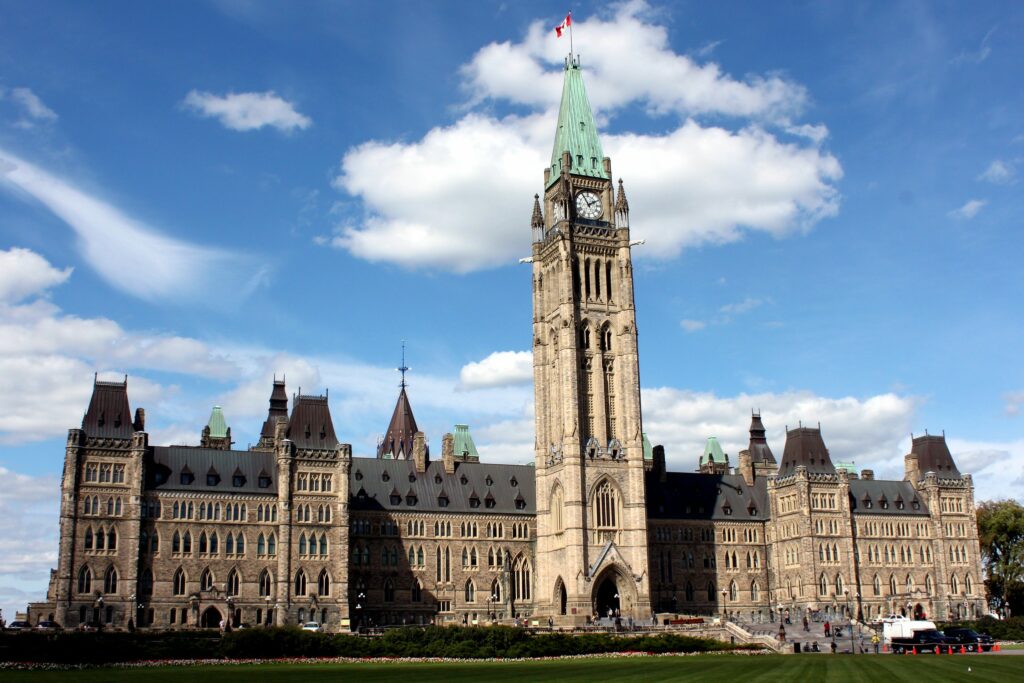Canada has launched a multi-front approach to “Buy America” policies that includes seeking exemptions from both current and future policies. A special committee of the Canadian Parliament has called on the Canadian government to seek “a full exemption” from “Buy America” policies. In 2010, Canada received the only “Buy America” exemption that a single country has been given but only when it agreed to provide the United States with access to its provincial procurement. This post outlines the Canadian aims and reviews the U.S. treatment of “Buy America” exemptions, including the 2010 waiver for Canada.
The Canadian Chamber of Commerce launched an initiative in April to bolster Canada-U.S. relations,” with “Buy American” as one of its five priorities. It emphasized that “it is critical that potential U.S. stimulus spending does not preclude opportunities for Canada.” Canada’s trade minister also raised “Buy America” provisions with the U.S. Trade Representative.
In June, a special committee in Canada’s House of Commons issued a report on “Buy America” procurement policies. It contends that these policies are “undermining regional supply chains” because they do not “differentiate between integrated supply chains and imported or finished goods.” It urges the Canadian government to seek a full exemption for Canada from current and future “Buy America” policies. If that is not possible, it recommends that it prioritize the exemption of integrated supply chains and “pursue an exemption for specific Canadian sectors.” It also wants to “raise awareness” in the U.S. of the increased costs to state and municipal projects if Canada is not given an exemption. The committee also recommends that the Canadian government “closely monitor” developments of the American Jobs Plan announced by President Biden in March 2021.
The Parliament committee recognized that Canada is exempt from the Buy American Act of 1933, which applies to the federal government’s procurement of goods. The U.S. waives that law for goods of parties to the WTO Government Procurement Agreement (GPA) and free trade agreements (FTAs). With regard to other federal laws that prohibit or restrict purchases of foreign goods or services, including the Berry Amendment and transportation services, as well as small business set-asides, the U.S. excludes the procurement subject to the restrictions from the GPA and FTAs.
Canada is focusing on Buy America” policies. These are domestic purchasing restrictions that Congress, beginning in the late 1970s, has attached to federal funding for infrastructure projects undertaken by state and local entities in particular transportation projects such as highways and bridges. They require the use of American-made iron, steel and manufactured products in the federally funded projects. In order for states and other sub-federal entities covered by the GPA and FTAs to comply with both the funding restrictions and the obligation to provide national treatment under trade agreements, the U.S. excludes federal funding restrictions that apply to highway and mass transit projects, as well as airport projects, from the agreements. Given that these exclusions have been in place since implementation of the 1994 GPA, the likelihood that the U.S. would waive them is probably quite low.
As for waiving new “Buy America” policies, there is one precedent. In 2010, the U.S. gave Canada a waiver of the “Buy America” provision in the American Recovery and Reinvestment Act of 2009 (ARRA) - the $800 billion economic stimulus package enacted at the beginning of the Obama administration. Congress required the use of American-made iron, steel and manufactured goods in ARRA-funded projects unless the project was covered by an international agreement (or another exception applied).
At that time, Canada had no rights to participate in sub-federal procurement because the North American Free Trade Agreement did not include such coverage and the U.S. withheld the 37 states that it covered under the GPA because Canada had not covered its provinces. As a consequence, Canadian supplies had to meet the “Buy America” requirement if they wanted to participate in the ARRA-funded projects.
Canada’s request for a waiver of the “Buy America” requirement led to negotiations of a bilateral agreement in February 2010. Based on that agreement, the U.S. waived the ARRA “Buy America” requirement for Canadian goods in projects funded under seven programs administrated by the Departments of Agriculture, Energy and Housing and Urban Development and the Environmental Protection Agency. In exchange for the waiver, Canada agreed to open the procurement of its provinces – for the first time – and bind that coverage under the GPA. The U.S. provided Canada with access to the 37 states it covers under the GPA.
Hopefully, any new “Buy America” policies that are incorporated in new legislation will exclude procurement covered by trade agreements, as in ARRA. That exclusion of procurement subject to international agreements has been included in subsequent legislation and should become the standard. Including such a provision may be easier for the administration to accept than negotiating exemptions based on supply chains or sectors. While Canada may have a compelling case for such an exemption, were the U.S. to provide it, other trading partners would likely make similar requests.
Jean Heilman Grier
July 14, 2021
Related Posts
Trade Implications of the Buy American Act of 1933
Federal Domestic Content Restrictions on State & Local Projects
Trade Agreements Act of 1979: Broad Authority, Narrow Application
Post Permalink: https://trade.djaghe.com/canada-seeks-buy-america-exemptions/


